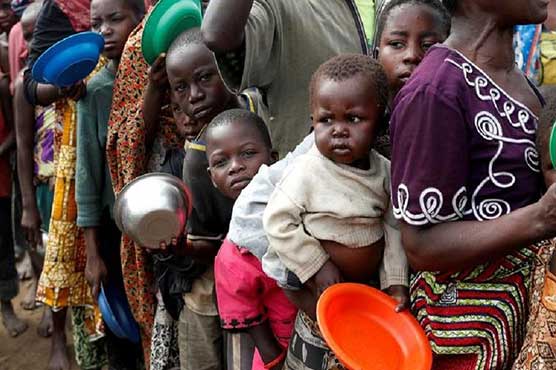Nigeria loses 800,000 children yearly to malnutrition – World Bank

No fewer than 800,000 children under the age of five die in Nigeria every year due to malnutrition, the World Bank has said.
This was revealed by the World Bank country director, Shubham Chaudhuri, on Wednesday in Abuja at the Round Table Engagement with Traditional and Interfaith Leaders in advocating for partnership to improve human capital development through Girl Child Education.
The director further explained that the children were not getting enough basic support, that even if they survive, they will not be as productive as they ought to be, saying that that is the reason the World Bank is providing support for primary health care, supporting basic education.
Speaking further, Chaudhuri said Nigeria has the largest number of children out of school, almost 14 million children out of school. “So we’re working with all the states to support them and helping to bring the children back into the kids again, more schools, partly it’s about getting different types of learning experience or reaching out to the non traditional schools to make sure that at least the children learn, read, write, do basically perfects.
“We are working on supporting the Federal Government and state governments by providing financing but also ideas from other companies.”
Speaking on the population growth and national census to be conducted, the Chairman, National Population Commission (NPC), Nasir Isah Kwarra, said the issue of population management had been a very big challenge to the nation.
He said the commission advised the government on population growth, saying that Nigeria had a huge population and the government should utilize this opportunity to invest heavily and get this aging population to be a great asset to the country.
The commissioner said “on occasion like this presents to engage our traditional and religious leaders because they are closest to the people and people, respect them, and how to use them to bring about this demographic transition. So that we can use the resources God has given us.
“I want to thank the World Bank and other stakeholders for supporting this event and the participants.”
The Sultan of Sokoto, Alhaji Muhammadu Sa’ad Abubakar, said census was very important, but should be done in a climate that is conducive.
While speaking on the improvement for human capital development, the Sultan said they cater for thousands of people to go to schools but it is not known to the public.
He said “This is a forum where an example is brought for people to know how others can key into this. Some of our big men have so much that I don’t know what they will do with the money if they live 100 or 1,000 years and will not spend N1 or N1m of it. What will they do with it? How can they come out and help, such organizations or groups and individuals who are spending a lot to help our communities.”
Speaking on policies, plans and procedures for human capital development, Cardinal John Onaiyekan said in occasion like this for the purposes the organization, that people like the religious leaders should not just be invited to an event but should also be invited to where they are formulating policies, likewise when it comes to implementing of programs and distribution of funds.
He also reiterated that Nigeria is not overpopulated, saying that the problem is that the population is not properly looked after and managed.
“We should not see fertility as if it is a disease. Fertility is a blessing, talk to women who have no children, so we should not give the impression that having children is bad. When you have good standards of living, you will not see the need not to take care of children.”
Speaking on the significance of girls’ education, Dr Mario Mandara, Special Adviser to the Governor of Borno State said over 100 million young people cannot read or write, and that 60% of these are females.
She further stressed that in sub Saharan over 70% children do not complete their education, saying that in Nigeria in junior schools 89.5% and the senior secondary schools only 13.9% to actually complete.
However, Mandara urged the governments and traditional rulers to take the lead by encouraging parents to ensure that every child, especially the girls children, at least complete secondary school, and using their power to ensures every wards have secondary school.
She further stressed that the traditional ruler’s should advocate for policies of completion of education that every child deserves and to take the lead to improve the future of the communities, and Nigeria.
